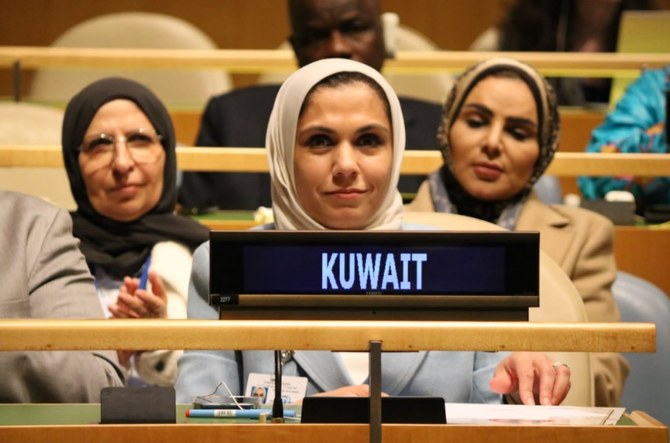
- ARAB NEWS
- 25 Apr 2024

NEW YORK: Kuwait wants to empower its female population as “equal partners” to help boost the country’s drive for a sustainable future, its minister for social and women’s affairs has said.
Mai Al-Baghli told the UN’s Commission on the Status of Women in New York that her country wanted women to achieve progress at various levels, including technological innovation.
Al-Baghli said that the session came at a crucial time, with only seven years ahead of the deadline for attaining objectives of global sustainable development, set at 2030.
“Kuwaiti women have proven that they are capable of facing challenges and difficulties, turning them into effective and prime factors for building modern Kuwait,” she said.
The UN’s sustainability goals call for attaining gender equality and empowering women and girls, Kuwait’s News Agency reported Al-Baghli as saying.
She urged member states to use their collective strength and make progress even in the face of social, political, economic and health challenges.
Kuwait’s Constitution guarantees gender equality and the nation’s women have demonstrated perseverance, determination and ambition to achieve that goal, Al-Baghli said.
In addition to recognizing women rights, the country has adhered to the UN Convention on the Elimination of All Forms of Discrimination against Women since joining in 1994. Kuwaiti women were first given the vote in 2005.
The minister said that women account for 59 percent of the national workforce, higher than the aspired global standard of 39 percent, and 21 percent of the leaders.
“Therefore, they have become a key force for attaining the national development strategy Kuwaiti vision 2035,” she said.
At the scientific level, the proportion of female students in medical and engineering colleges has reached 75 percent, and even higher in medical sciences and pharmaceuticals’ faculties.